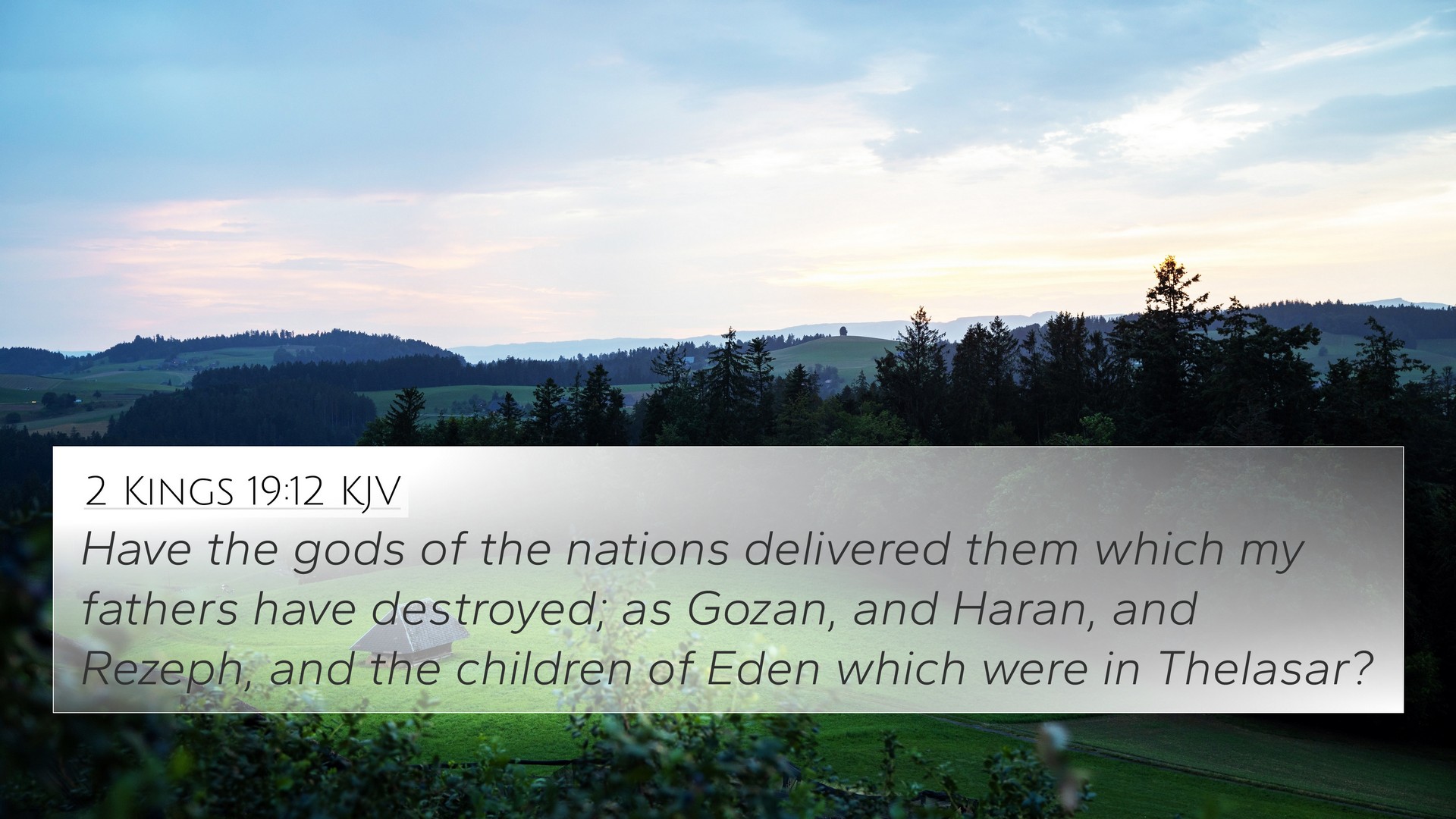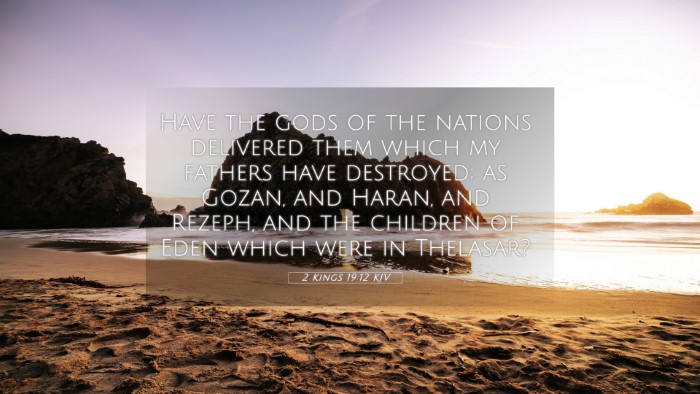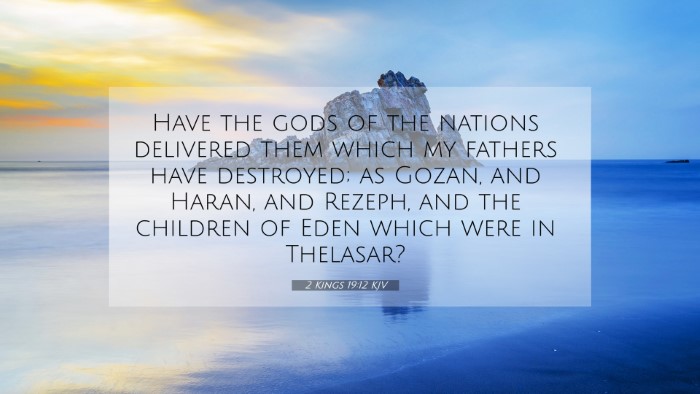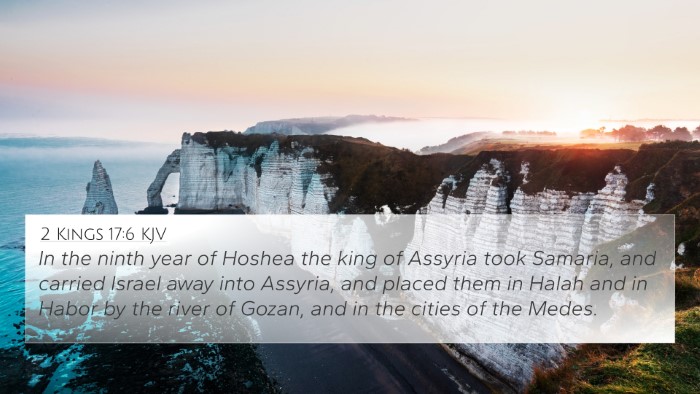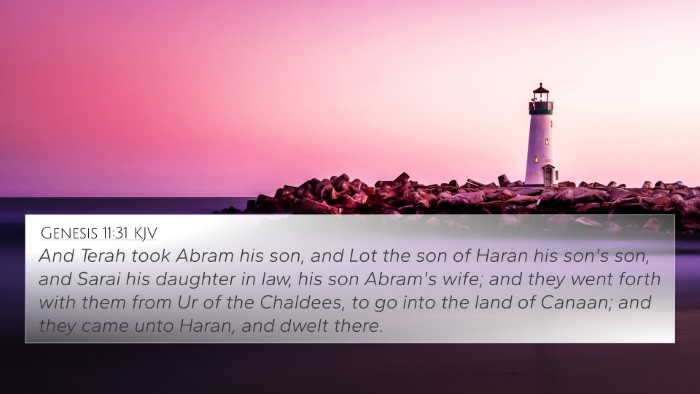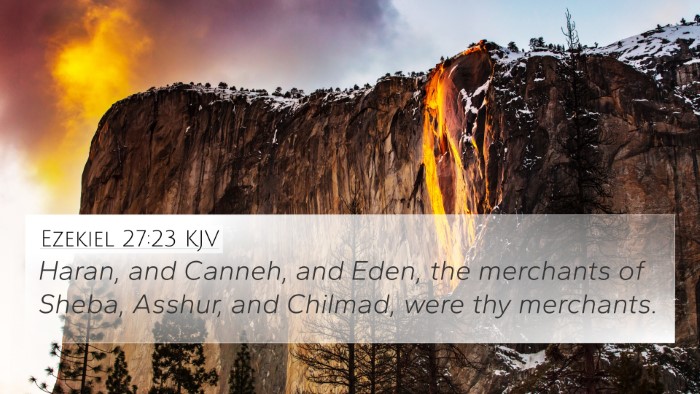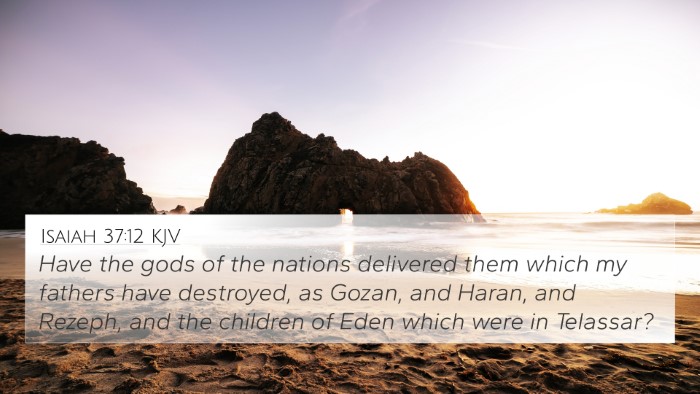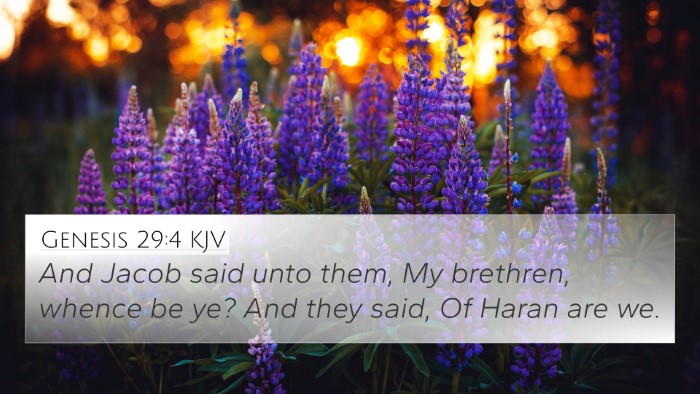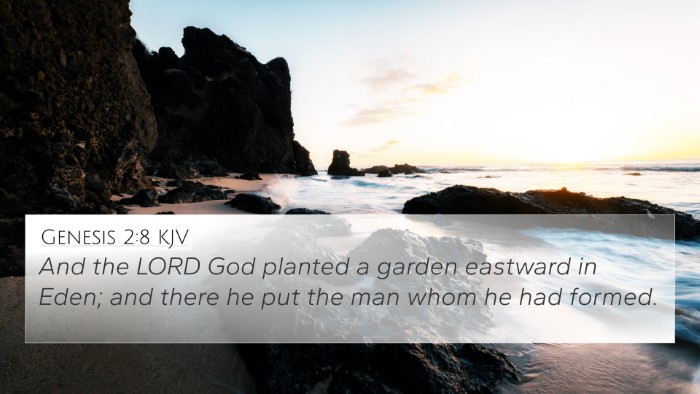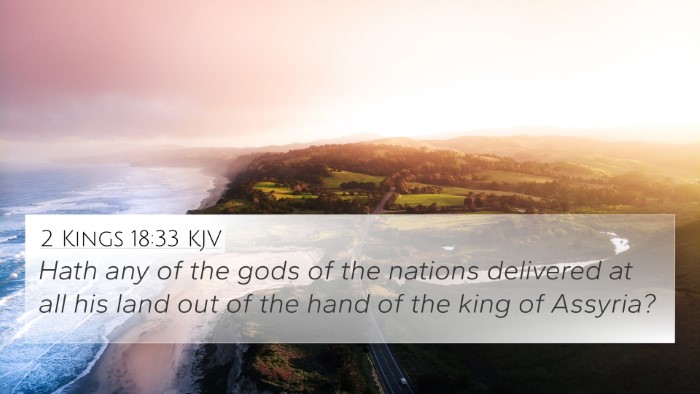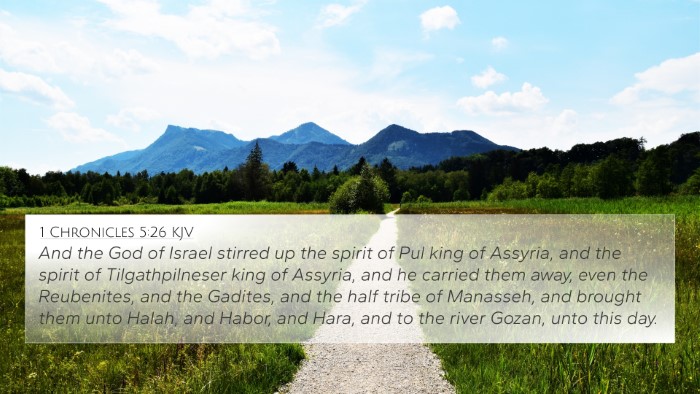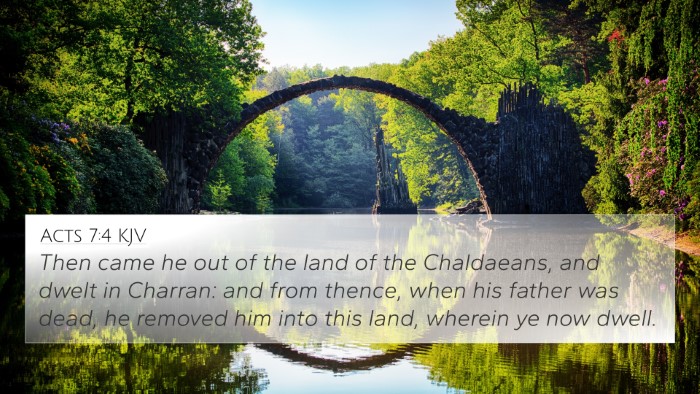Understanding 2 Kings 19:12
Verse: "Have the gods of the nations delivered those whom my fathers have destroyed, as Gozan, Haran, Rezaph, and the people of Eden who were in Telassar?"
This verse finds itself within a larger narrative concerning King Hezekiah of Judah as he faces the Assyrian king Sennacherib’s threats. It serves as a declaration of defiance against the false gods of other nations.
Summary of Biblical Meaning
The inquiry posed by Sennacherib encompasses several key theological and historical themes:
-
The Inefficacy of Idols: Sennacherib questions the power of the gods worshipped by the nations that had fallen before Assyria. This interrogative showcases a broader biblical theme: the impotence of idols compared to the sovereignty of the true God. Commentators like Matthew Henry expound on how this verse emphasizes the futility of relying on false gods in times of trouble.
-
Historical Context: By naming specific nations and cities—Gozan, Haran, Rezaph, and others—Sennacherib highlights the historical victories of Assyria. Adam Clarke draws attention to this point, noting that these mentions serve both to intimidate and persuade Hezekiah of the inevitability of Assyrian dominance.
-
Defiance and Hubris: Sennacherib’s challenge can be seen as an act of pride. Albert Barnes points out that his rhetorical question reveals a confidence in military prowess rather than in any religious conviction, showcasing the arrogance typical of tyrannical rulers in biblical narratives.
-
Faith Versus Fear: The underlying message challenges the reader to consider whom they serve in times of distress. While Sennacherib boasts of victories, Hezekiah remains steadfast in his faith in the Lord, as illustrated in the subsequent chapters. This contrast offers rich material for Bible verse parallels as we examine the biblical approach to trust in God amidst external threats.
Cross-References of 2 Kings 19:12
This verse resonates with several other biblical texts that reflect similar themes:
- Isaiah 36:18–20: The Assyrian envoy similarly questions the power of the God of Israel.
- Isaiah 37:12: It mentions the nations that have fallen to Assyria.
- Psalm 115:4–8: Discusses the impotence of idols and how they cannot save.
- Jeremiah 10:5: Explores the idea of the futility of pagan worship.
- 1 Kings 18:26–29: The challenge between Elijah and the prophets of Baal highlights the inability of false gods to answer prayers.
- Romans 1:22: Paul references the folly of idol worship and the blindness it produces.
- Daniel 3:12–18: The story of Shadrach, Meshach, and Abednego parallels the theme of faith under pressure, contrasting with Sennacherib's hubris.
Exploring Biblical Connections
When studying 2 Kings 19:12, it is beneficial to employ cross-referencing methods to enhance understanding:
-
Tools for Bible Cross-Referencing: Utilizing a Bible concordance can help trace similar themes across scripture, linking different narratives and providing a cohesive view of biblical theology.
-
Cross-Reference Bible Study: Integrating comparisons between Old and New Testament events can illuminate God’s consistent character and dealings with humanity.
-
Identifying connections: Observing similarities between the rhetorical challenges posed by Sennacherib and other biblical figures showcases an inter-Biblical dialogue that reflects on the nature of faith and power.
-
Comparative Bible Verse Analysis: Connecting 2 Kings with other passages about God’s deliverance of Israel can form a theme of divine protection amidst chaos.
-
Scriptural Cross-Referencing: Exploring verses that emphasize the failure of unjust rulers points to a larger biblical narrative of God’s ultimate sovereignty.
Thematic Analysis
Looking at 2 Kings 19:12 through the lens of themes highlights crucial spiritual connections:
- Trust in God: The verse underscores a pivotal choice—trust in unreliable leaders or genuine faith in God who delivers.
- Judgment Upon Nations: Sennacherib’s arrogance sets a precedent for divine judgment, a theme prevalent in both prophetic literature and historical accounts.
- The Role of Prayer and Intercession: Following this verse, Hezekiah’s prayer exemplifies reliance on God, making a powerful statement on the necessity of prayer in the face of adversity.
Conclusion
2 Kings 19:12 serves not only as a historical record but as a theological touchstone, calling readers to reflect on the strength of their faith against external pressures. Utilizing cross-references and biblical connections enriches one’s understanding of these profound themes and encourages a deeper engagement with the text. As we study this and surrounding verses, we see a beautiful interwoven tapestry of God’s sovereignty, human pride, and the assurance always to turn to Him in times of trouble.
